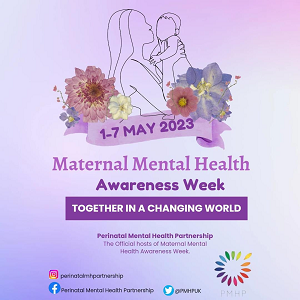An Unexpected Postnatal Diagnosis
Comments Off on An Unexpected Postnatal DiagnosisMost of us have dreamed of being a parent. We imagine how wonderful it will be, what our children will look like, spending holidays watching them play on the beach. We know that it’s not going to be easy, of course – the sleep deprivation, sacrificing your social life, the everlasting ‘mum guilt’. But nonetheless, we crave it.
Having your baby diagnosed with a disability may feel like all your expectations, hopes and dreams for the future have just come crashing down around you. Everyone will deal with an unexpected diagnosis differently. There’s no textbook here, and struggling with the news is just as valid as taking it in your stride. As well as processing the potential long-term implications, you may also be dealing with a prolonged stay in hospital before being able to take your baby home. Don’t underestimate how hard this can be.
You will probably go through a horde of emotions; grief for the baby you thought you were going to have, anger that it’s happened to you, sadness that life no longer looks the same. These feelings might linger for weeks, months, or even years; it’s a process that may take time, but you WILL get to a point of acceptance, and contentment.
If you’re in the early days following a diagnosis, and you’re not really sure which way is up, here are a few tips to guide you along that road to contentment.
Communicate
Communicate openly with your partner, your family, your friends. A lot of people will be unsure about how to react to the news too – it’s hard for them to land the balance between being supportive and understanding, without tipping over into pity and patronisation. Take time to explain things to people. Having them treading on eggshells for fear of saying the wrong thing is only going to make them feel awkward, and you feel frustrated. Have open conversations rather than bottling up little irritations; there’s only so much that bottle will hold.
Acknowledge your true feelings
Be honest with yourself from the start. When there’s a flood of tears sitting just behind your eyes and someone asks, ‘how are you?’, let those tears escape. There’s no shame in feeling overwhelmed, scared, or desperately sad. Remember emotions are complex, and not mutually exclusive; you can love your baby immensely and still feel angry. Mental health is at the forefront these days and there’s lots of support out there. Your GP or Health Visitor will be able to signpost you to the most appropriate help if you need it – don’t be afraid to ask. There are also services you can self-refer to if you prefer, such as Home-Start or your local NHS Improving Access to Talking Therapies (IAPT) service. Click here to search for your local service.
Keep a diary
You may never read it again, you may dig it out in 10 years and see how far you’ve come, or you may publish it! Regardless, the simple act of writing can be a helpful way to process things. From facts, feelings and helpful advice you have been given, to ignorant comments you wish you’d never heard, writing it down helps. And it’s a great way to pass help pass those long days sitting beside an incubator in a neonatal intensive care unit (NICU).
Surround yourself with the right people
It can be exhausting explaining things over and over, to people who love you and want to support you, but just don’t quite ‘get it’. Having a conversation with someone who knows what sats, UACs, CPAP, Nutriprem and SaLT* are, will be a mighty relief. Find these people. There’s no substitution for someone going through the same thing as you – whether that’s talking to other parents during your time in NICU, or finding local disability support groups. You will probably feel more comfortable talking about your true feelings with these people, without the fear of being judged. People on the same journey will become an invaluable source of knowledge, advice and support, and lifelong friendships often bud from these unique shared experiences.
Embrace the highs
Parenting is riddled with highs and lows. I think it’s fair to say that if you have a child with special needs, the lows will be lower, but the highs will be higher. You will see other typical kids smashing their milestones without any real effort at all. Yes, their parents will be proud. But as a parent of a child with a disability, when you see the determination, the hard work, the strength it takes for your child to grasp that toy, or to take their first step, you won’t just be proud, you will feel like they have just won an Olympic medal. Embrace these highs, they are humbling and beautiful.
Don’t compare your baby to others
This is easier said than done, and it might take years before you can truly do it! Seeing other children race ahead in their development compared to yours is hard, there’s no denying it. You may find social media can be very isolating in these circumstances, and giving yourself a break from it might be helpful. Try to concentrate on your child alone. See their progress, accept it might be slower or more limited, and remember how rewarding those achievements are going to be.
So, you may have found yourself on a different path to the one you expected, a member of a club you didn’t anticipate joining. But having a child with a disability will open up a new world for you; a world of humility, appreciation and gratitude. The experiences you will have, and the people you will meet along the way are going to enrich your life in ways you haven’t yet imagined. Take a minute to read this poignant short story, ‘Welcome To Holland’ written by an American author, Emily Perl Kingsley, who had an unexpected diagnosis of Down Syndrome when her son was born. It beautifully captures the experience of receiving a diagnosis, and serves as a metaphorical reminder to embrace life’s winding path. Holland is beautiful, too.

Sophie Platt lives with her husband, two young girls (Megan and Jessica), and their daft spaniel, Louie. While her post-natal journey with Megan was very typical, Jess was born 2 months prematurely, with a congenital heart defect and Down Syndrome, giving Sophie first-hand experience dealing with a wide range of circumstances. When she’s not wearing her ‘mum’ hat, Sophie works as a small animal Veterinary Surgeon, and enjoys dabbling with some veterinary and medical writing in addition to her clinical work.
*Sats = oxygen saturations; UACs = Umbilical Artery Catheters, used to measure blood pressure in tiny babies in neonatal care; CPAP = Continuous Positive Airway Pressure, a form of breathing support used in neonatal units; Nutriprem = an infant milk formula designed for premature babies; SaLT = Speech and Language Therapy, also useful for assessing a baby’s swallow


